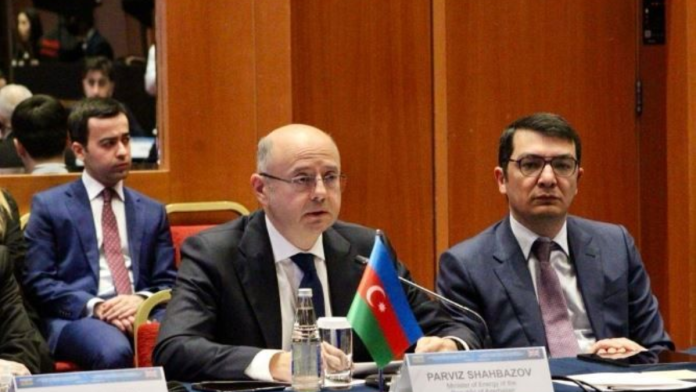The United Kingdom has announced that several major energy projects in Azerbaijan and Kazakhstan, which involve Russian oil companies Lukoil and Rosneft, will be temporarily exempt from UK sanctions. This decision is aimed at making sure that important energy projects continue to operate smoothly and that oil and gas supplies remain stable in the region, despite ongoing geopolitical tensions.
Sanctions imposed on Lukoil and Rosneft
On October 15, 2025, the UK imposed sanctions on Russia’s two largest oil companies, Lukoil and Rosneft. These sanctions on Azerbaijan and Kazakhstan are part of broader measures to limit Russia’s revenue streams, which are believed to support its activities in Ukraine. The sanctions include freezing the companies’ assets, restricting their transport operations, and banning UK-based trust services. Both Lukoil and Rosneft are considered strategically important to Russia’s economy, making these sanctions a major step in international efforts to apply pressure on the country.
Ukraine’s defense strengthened by Trump’s daring fund backed by Chinese import levies
Exemptions granted to key energy projects
Despite these sanctions, the UK has granted temporary exemptions for several important energy projects in Azerbaijan and Kazakhstan. These exemptions will remain in effect until October 14, 2027, ensuring that critical energy operations can continue without interruption.
One of the projects covered by the exemptions is the Caspian Pipeline Consortium (CPC), a major pipeline that transports oil from Kazakhstan and Turkmenistan to the Black Sea. The pipeline plays a crucial role in moving energy resources from Central Asia to international markets. Another exempted project is TengizChevroil, a joint venture that operates the Tengiz oil field in Kazakhstan. This venture is run in partnership with Chevron, ExxonMobil, and Kazakhstan’s state-owned KazMunayGas, and it contributes significantly to Kazakhstan’s oil production.
EU sanctions in crisis as Austria prioritizes bank losses over Russia pressure
In Azerbaijan, the Shah Deniz natural gas field is included in the exemptions. Operated by BP with participation from Lukoil, this field is one of the largest sources of natural gas in the region and supplies energy to multiple countries. The South Caucasus Pipeline, which transports natural gas from Azerbaijan to Turkey through Georgia, is also exempted, ensuring a steady flow of gas to international markets. Similarly, the Azerbaijan Gas Supply Company, which distributes natural gas within the country, is included in the exemptions.
Kazakhstan’s Karachaganak oil and gas field, operated by a consortium including Shell, Eni, and Lukoil, is another project granted an exemption. This field is a major contributor to Kazakhstan’s energy output and is critical for maintaining the region’s energy supply. By allowing these projects to continue operating, the UK is balancing its sanctions policy with the practical need to maintain stability in global energy markets.
Implications of the exemptions
The UK’s decision to grant exemptions highlights the delicate balance between enforcing sanctions and ensuring energy security. Keeping these energy projects operational helps prevent disruptions in oil and gas supplies that could affect Europe and other energy-dependent regions.
U.S.-U.K. Unite Against Digital Slavery — Sanctions Hit Scam Networks Exploiting Trafficked Workers
These exemptions also highlight the complexity of international energy partnerships. Governments need to consider both geopolitical goals and economic realities when implementing sanctions. While the exemptions are temporary, they give companies and countries involved time to assess the impact of sanctions and explore alternative ways to maintain production and distribution.
By targeting Lukoil and Rosneft with sanctions while exempting critical projects, the UK is sending a message that it aims to maintain pressure on Russia without risking regional energy stability. This careful approach reflects the challenges of enforcing sanctions in a highly interconnected global energy market, where every decision can have wide-reaching economic and political consequences.


